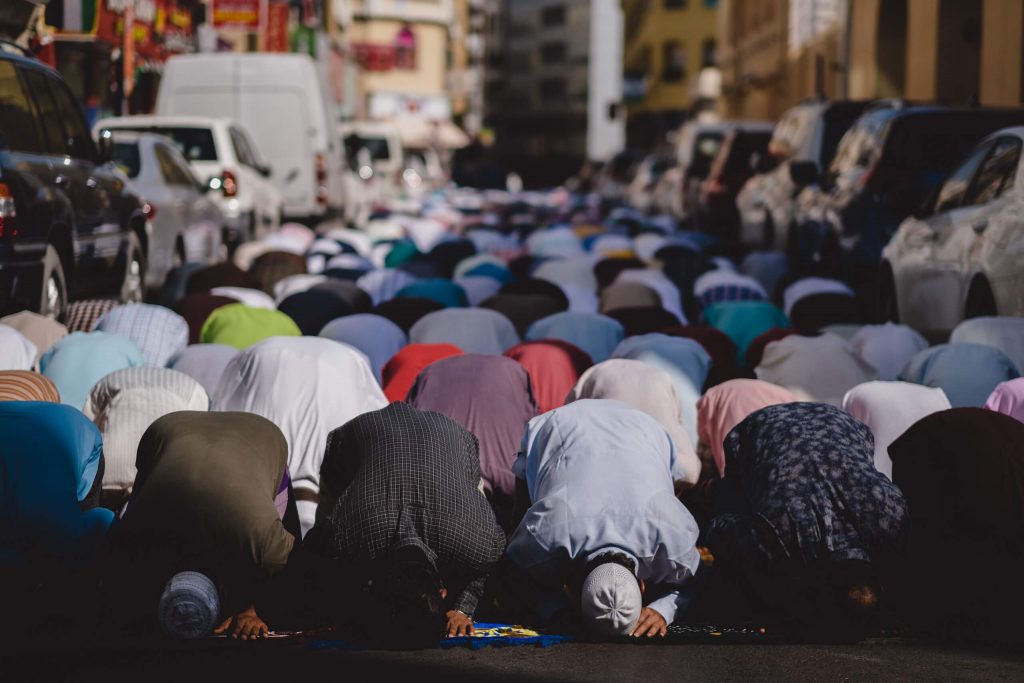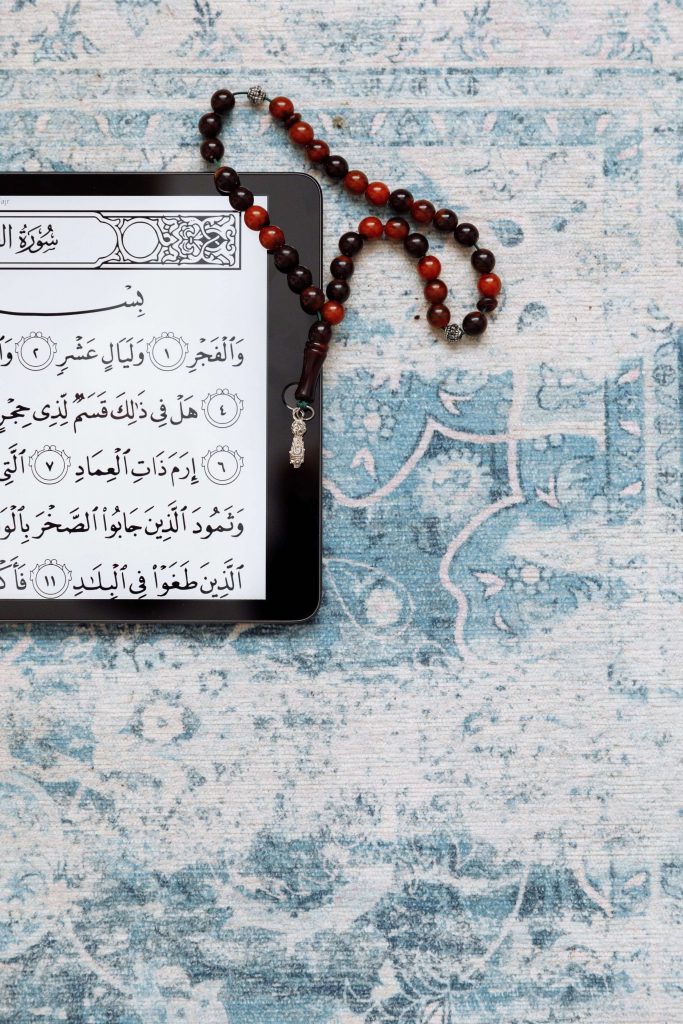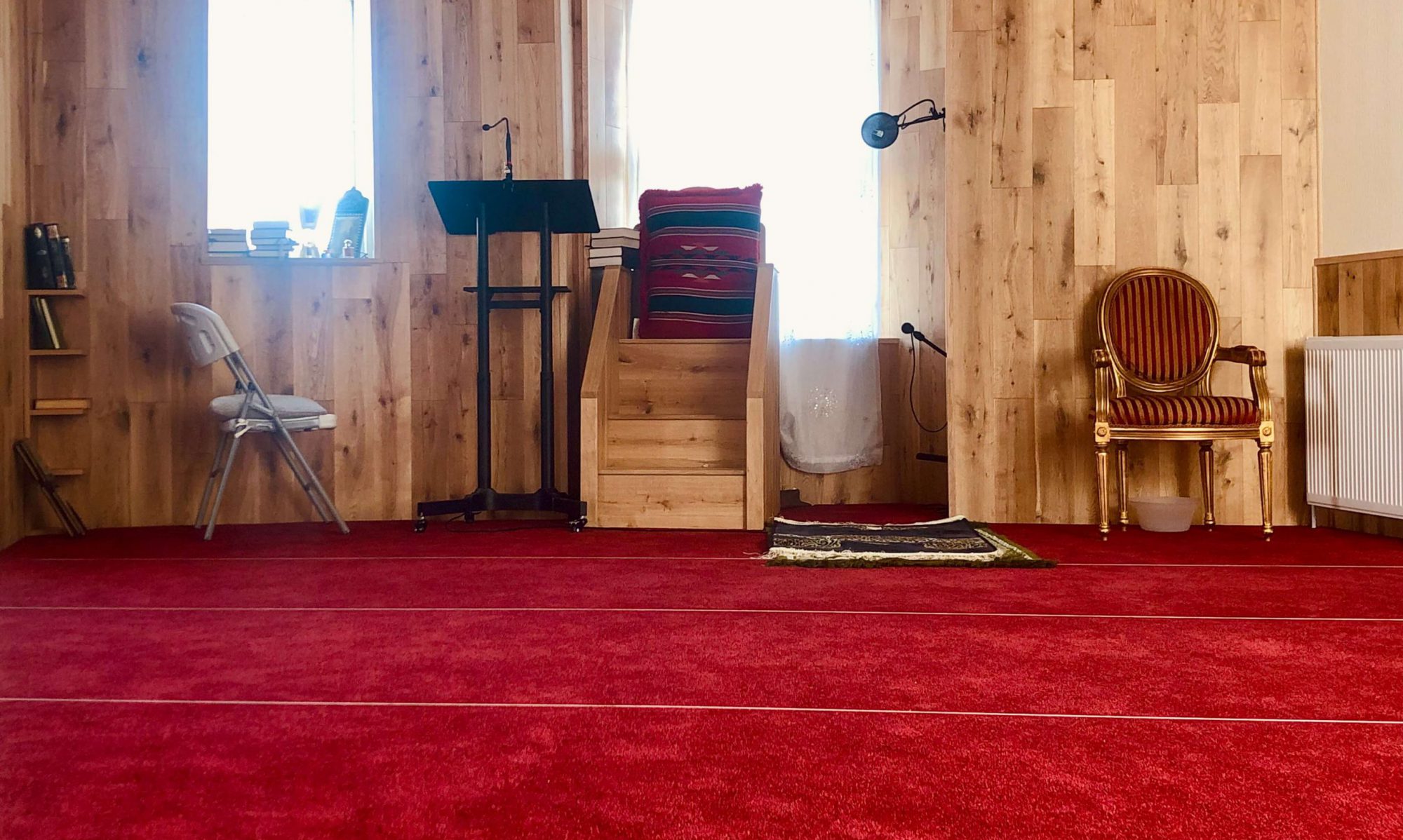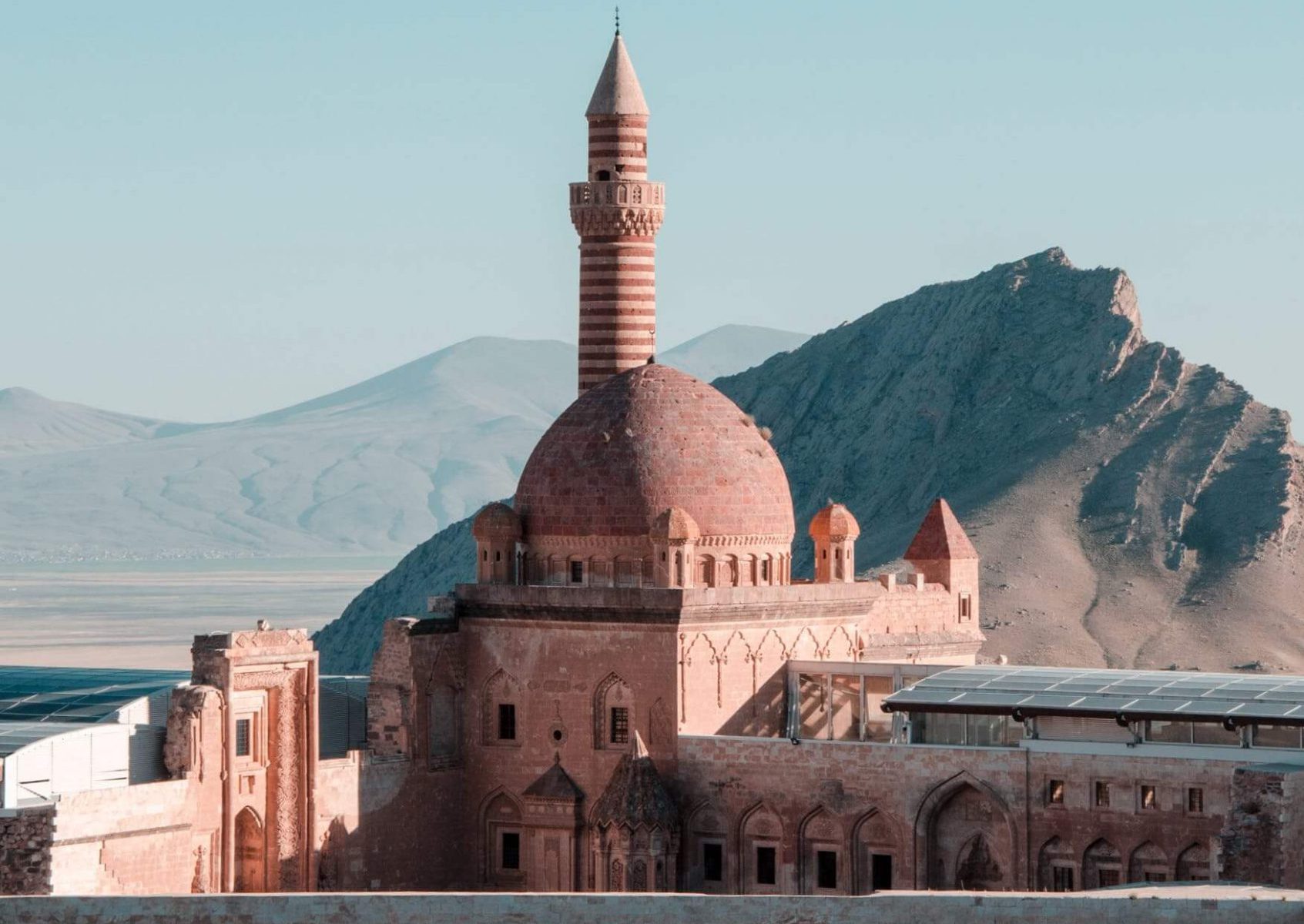قُلْ هُوَ ٱللَّهُ أَحَدٌ
[Quran 112:1]
Say, “He is the only God.
Islam is a way of life that peacefully accepts one true God – Allah – as the only unconditional Master of all creation.
The word ‘Islam’ derives from the Arabic for ‘submission’, that is, to the supreme authority and instructive guidance of the one and only God – the compassionate, merciful, unborn, eternal, unique, Creator of the Universe [Quran 112:1-4]. He is beyond the constructs of imagination, yet is ever accessible through supplication [Quran 2:186]; He is beyond the limitations of this world, yet is closer to us “than our jugular vein” [Quran 50:16]. He is beyond the dependence of all life-forms, yet tends to the needs of everyone [Quran 55:29]. The belief in one God is a necessary pre-condition of all ‘good’ works, as it allows such righteousness to be grounded on the intention of showing loyalty to the only Being worthy of worship, as opposed to harmfully seeking the appreciation of others. This worldly life is a test of our behaviour, the eventual results of which will see each of us either rewarded with eternity in Paradise, or punished with Hell [Quran 18:7]. At a practical level, Islam has the power to unite humanity around a common understanding of purpose, and a productive motive to build peace on earth.

Islam can be summarised by its definitions of ‘Submission’ – the state of body, ‘Belief’ – the state of heart, and ‘Excellence’ – the state of intentions.
The 5 Pillars of Submission
1. Belief – unceasingly in God and His Messenger Muhammed ﷺ
2. Prayer – 5 times daily to God
3. Tax-giving – 2.5% of surplus wealth annually to those in need
4. Fasting – in the daytime during the month of Ramadan every lunar year
5. Visitation – once in a life for those capable to the respected Mosque of Mecca
The 6 Articles of Belief
1. One God – who literally exists and is known by His titles
2. His Angels – who administer the unseen affairs of humans
3. His Texts – that communicate His guidance to people in clear terms
4. His Messengers – who represented His instructions in practice
5. His Control – over the exercise and outcome of all matters
6. The Resurrection Day – prefacing the final moral judgement of our lives
The Meaning of Excellence
To serve God as if you see Him – knowing well that He sees you.

The Universal Ideology
Through the reality of existence itself, the truth of one ultimate God is the inborn and self-evident conclusion of any rational being. Muslims, meaning ‘those who submit’ to this attestation, are therefore included not only among the former Preachers – which include Adam, Abraham, Moses, and Jesus – but also from all material of the universe itself – which acknowledges God’s authority by obeying His divine laws of physics without question [Quran 55:7]. Beyond fundamental tenets and obligations, Muslims patiently strive in their life to manifest their devotion and adoration of God by promoting what is good, and shunning what is evil [Quran 3:110]. Examples of the former include responding to greetings, visiting the sick, and reconciling disputes [Quran 4:86, 49:9]. Examples of the latter include rejecting intoxicants, dispelling superstitions, and avoiding gossip [Quran 5:90, 49:11].
The Ever-lasting Quran
The primary source of Islamic counsel and legislation is the Quran. It defines itself as a set of ‘signs’ from God that were ‘sent down’ as a guidance for people and The Standard for assessing morality [Quran 2:185]. Given the timeless scope of its intended audience, manuscript analysis proves the self-made promise that the Quran would be guarded against any alterations to its original text [Quran 15:9]. It is generally regarded as the finest example of Arabic literature to this day. It teaches the attributes of God and practice of Islam in the form of historic recounts, rules, analogies, descriptions, and proverbs.
The Final Messenger Muhammad ﷺ
Muhammad (ﷺ – may God’s blessings & peace be with him) was a man with an appointed mission to present the natural message of Islam to an unaware people – us [Quran 36:3-6]. He is considered the Seal of the Preachers – a long historical chain of such divinely chosen ones [Quran 33:40]. While the Quranic passages he received during his ministry can be regarded collectively as a constitution for the Muslims, his own life, which is authentically recorded in books of narrations, is looked up to as the pragmatic application of its principles.
570-610CE – His birth and upbringing as an honest yet illiterate trader
610-622CE – His call to the Islamic doctrine of monotheism in Mecca
622-632CE – His propagation of Islamic law and leadership in Medina
With its wealth of preserved sources, Islam is arguably the only religion that is comprehensive enough to implement as a political state. It is a Code of Life that is practical in its application, yet heavenly in its ambitions. Though Muslims seek to spread the truth of God and His purpose for the human race, forced conversion is both explicitly forbidden and unnecessary: “The right path has been made clear from the wrong” [Quran 2:256], and we will all be judged according to our intentions.

COMMON ARABIC TERMS
Allah ‘God’ – The one and only deity worthy of devotion
Allahu-akbar ‘God is the Greatest’
Dua ‘appeal’ – Or translated as ‘supplication’. A call to God to respond to a request
Eid ‘Festival’ – Either of the two days of Islamic celebration which annually recognise the end of Ramadan fasting, and the end of Hajj visitation procedures
Hadith ‘News’ – The reported actions or words of Messenger Mohammed ﷺ
Hajj ‘Visitation’ – Or translated as ‘pilgrimage’; Once-in-a-lifetime duty of Muslims physically and financially capable to attend and carry out the procedures related to the sacred Cube Mosque in Mecca
Halal ‘Allowed’ – Items or actions considered usable or doable without divine punishment
Haram ‘Forbidden’ – Items or actions considered unusable or undoable without divine punishment
In-shaa-Allah ‘If God wishes [so]’ – Statement added in speech to securely express promises or future expectations
Imam ‘Director’ – Organically appointed leader of a communal prayer, whose expectations often extend to scholarly and social matters for the community
Iman ‘Belief’ – An ideal characteristic of a Muslim pertaining to the acceptance of the basic truths of Islam in the heart; encapsulated in 6 articles
Islam ‘Submission’ – A fundamental characteristic of a Muslim pertaining to the peaceful acceptance of one true God as the only unconditional Master of all creation; prioritised through 5 pillars
Ihsan ‘Excellence’ – A fundamental characteristic of a Muslim pertaining to the intention behind all actions; described as servitude to God like He is physically present, though He is ever-watchful regardless
Muslim ‘Submitter’ – One who accepts God as the unconditional Master of all creation
Ramadan ‘[Month of] Heatwave’ – The 9th month of the lunar calendar; obligatory period of annual Muslim fasting
Salah ‘Communion’ – Or translated as ‘prayer’; procedure of postures and recitations focused on the reverence of God; performed at least 5 times daily
Shahada ‘Witness [testimony]’ – Formally verbalised acceptance of Islam; translatable as ‘No deity is worthy besides God, and Muhammad is His Messenger’
Shirk ‘Association’ – Worst offence in Islam; sharing of the devotional rights of God with any other deity
Sunnah ‘Practice’ – Behaviours condoned by Messenger Mohammed ﷺ
Quran ‘Read-Out’ – Or translated as ‘recitation’; last verbal guidance from God to humanity as delivered via Messenger Mohammed ﷺ
Zakat ‘Growth-tax’ – Or translated as ‘purification’, or ‘charity’; portion of a Muslim’s surplus wealth given annually to needy groups of the society
Feel free to download our explainer leaflet ‘What is Islam: A Quick Guide for the Curious‘ below, or a print-friendly version for distribution here.
Allah knows best.
Last updated:
Jazak-Allah for reading. All knowledge, opinions, and translations expressed in our articles are the earnest study and reflections of the writer, prioritising honest interpretations of the Quran and authentic Hadith as evidence. Though the information contained does not necessarily represent the views of anyone other than the writer, all articles are cross-checked by brothers and sisters knowledgeable and experienced on the topic before being published on our site. We ask for forgiveness for presenting any information that comes to be incorrect or misleading, and accept that Allah is the Most-Knowing One.


